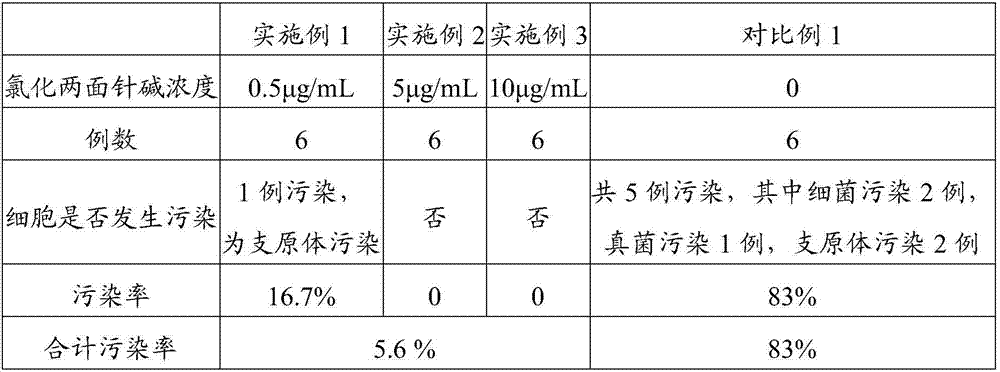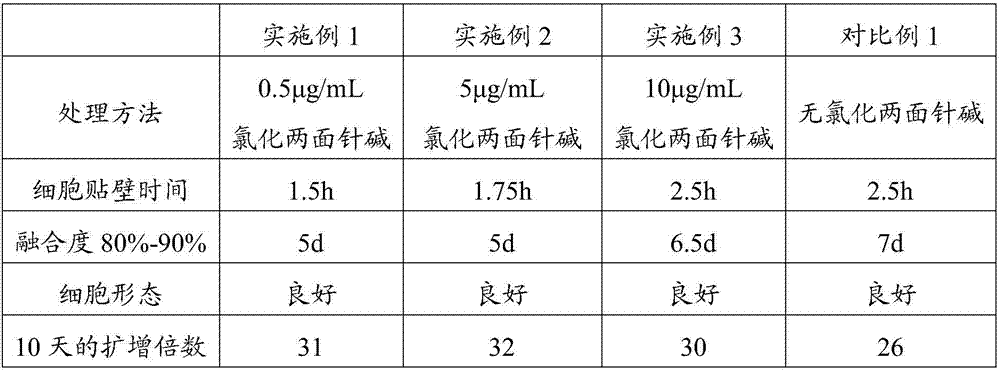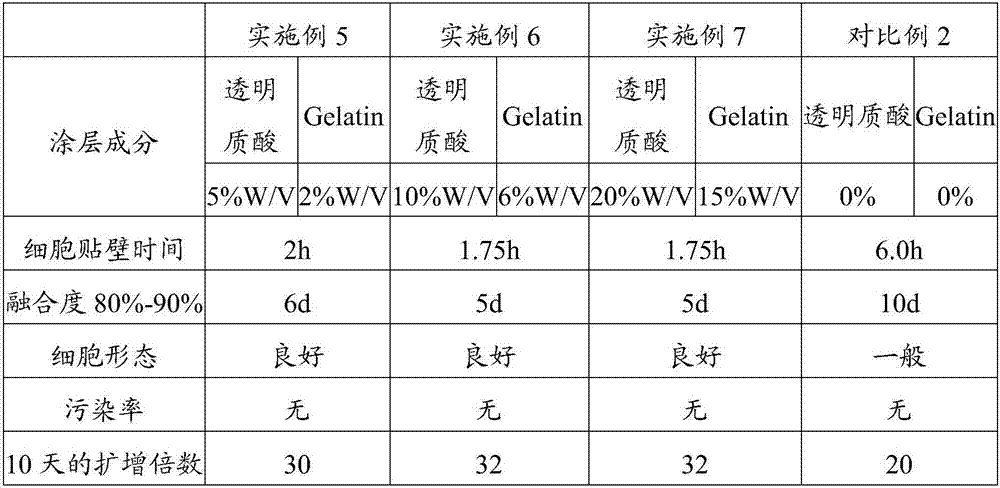Method for separating and preparing dental pulp stem cells
A technology for stem cells and dental pulp, applied in the field of separation and preparation of dental pulp stem cells, can solve problems such as cell loss, and achieve the effects of promoting cell growth, good stability and obvious bacteriostatic effect.
- Summary
- Abstract
- Description
- Claims
- Application Information
AI Technical Summary
Problems solved by technology
Method used
Image
Examples
Embodiment 1
[0052] Example 1 Separation and Preparation of Dental Pulp Stem Cells Treated with 0.5 μg / mL Echinacea Chloride
[0053] 1) Collection of teeth: Donate or preserve publicity for juveniles and children who have lost deciduous teeth, or adults who need plastic surgery and wisdom teeth extraction, collect peripheral blood samples from volunteers for virological testing, and collect healthy volunteers after they are qualified Teeth, after routine treatment, were stored in a transport solution containing 1000-2000U / mL penicillin, 1000-2000μg / mL streptomycin and 0.5μg / mL acanthine chloride, refrigerated at 4°C, transported to the laboratory, and stored in Separation process within 24 hours.
[0054] 2) Pulp cleaning and disinfection: transfer the collected teeth to a clean sterile plate, use sterile ophthalmic tweezers to grasp, sequentially wash with 0.9% normal saline containing 0.5 μg / mL acanthine chloride, 75% medical Alcohol, 0.9% normal saline, PBS buffer solution containing ...
Embodiment 2
[0058] Example 2 Separation and Preparation of Dental Pulp Stem Cells Treated with 5 μg / mL Ephedrine Chloride
[0059] 1) Collection of teeth: Donate or preserve publicity for juveniles and children who have lost deciduous teeth, or adults who need plastic surgery and wisdom teeth extraction, collect peripheral blood samples from volunteers for virological testing, and collect healthy volunteers after they are qualified Teeth, after routine treatment, were stored in a transport solution containing 1000-2000U / mL penicillin, 1000-2000μg / mL streptomycin and 5.0μg / mL acanthine chloride, refrigerated at 4°C, transported to the laboratory, and stored in Separation process within 24 hours.
[0060] 2) Pulp cleaning and disinfection: transfer the collected teeth to a clean sterile plate, use sterile ophthalmic tweezers to grasp, and successively wash with 0.9% normal saline containing 5.0 μg / mL amphetine chloride, 75% medical Alcohol, 0.9% normal saline, PBS buffer solution containin...
Embodiment 3
[0064] Example 3 Separation and Preparation of Dental Pulp Stem Cells Treated with 10 μg / mL Echinacea Chloride
[0065] 1) Collection of teeth: Donate or preserve publicity for juveniles and children who have lost deciduous teeth, or adults who need plastic surgery and wisdom teeth extraction, collect peripheral blood samples from volunteers for virological testing, and collect healthy volunteers after they are qualified Teeth, after routine treatment, were stored in a transport solution containing 1000-2000 U / mL penicillin, 1000-2000 μg / mL streptomycin and 10 μg / mL epispinine chloride, refrigerated at 4°C, transported to the laboratory, and stored at 24 separation within hours.
[0066] 2) Pulp cleaning and disinfection: transfer the collected teeth to a clean sterile plate, use sterile ophthalmic tweezers to grasp, and sequentially wash with 0.9% normal saline containing 10 μg / mL acanthine chloride, 75% medical alcohol , 0.9% physiological saline, PBS buffer solution contai...
PUM
| Property | Measurement | Unit |
|---|---|---|
| quality score | aaaaa | aaaaa |
Abstract
Description
Claims
Application Information
 Login to View More
Login to View More - R&D
- Intellectual Property
- Life Sciences
- Materials
- Tech Scout
- Unparalleled Data Quality
- Higher Quality Content
- 60% Fewer Hallucinations
Browse by: Latest US Patents, China's latest patents, Technical Efficacy Thesaurus, Application Domain, Technology Topic, Popular Technical Reports.
© 2025 PatSnap. All rights reserved.Legal|Privacy policy|Modern Slavery Act Transparency Statement|Sitemap|About US| Contact US: help@patsnap.com



